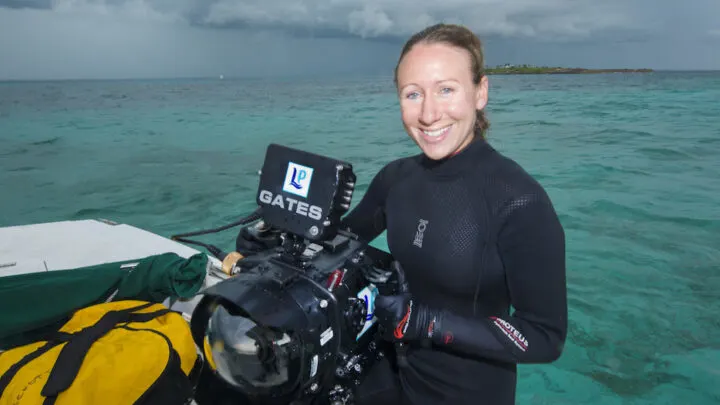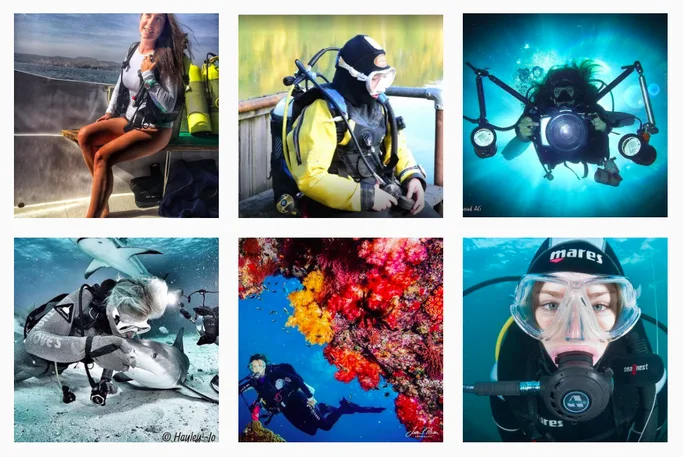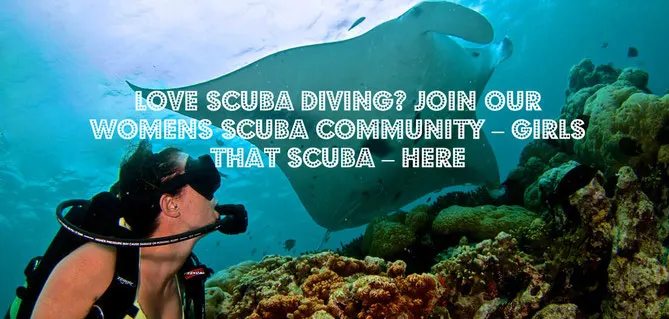If anything has come from our women’s scuba diving community over the first few months, it’s that the world is full of inspiring women who not only care about the ocean, but are actively promoting it and making it a better place. And there is no way we can keep these women’s stories to ourselves. With out series Scuba Stars we highlight women we think desereve to have their name in lights and we couldn’t be more excited for our latest scuba girls boss. Girls that Scuba member and contributor Jeanette Smith dives right in with Becky Kagan Schott.
With so many inspiring scuba icons to choose from, I started with a woman who radiates passion for her craft. Becky Kagan Schott, Emmy award winning videographer and technical diver, was kind enough to spare me time between her adventures to tell me about her work, how she got here, and what it takes to help others find their own launching point to a future career.
Can you give me a quick synopsis of what you would say your career is?
I’m an underwater photographer and videographer and I own my own company, Liquid Productions, and I do all kinds of work from working on underwater documentaries to magazine photo shoots to actually teaching technical scuba diving.
From a young age did you know that diving was what you wanted to get into?
When I was 12 years old, I remember watching documentaries on Discovery Channel and seeing great white sharks jumping out of the water and I was just fascinated by it. So I kind of had this interest in documentaries and the underwater world from the time I was about 11 or 12 years old and I begged my parents to let me do scuba training when I was 12 – at the time that was the youngest you could do the training – and they said ok and I babysat to pay for all the classes. I don’t know if they thought it might just be a phase, but it changed my life because from there on I was constantly diving and it gave me goals and new places to explore and I started with my photography after that, but it all started with just basically watching what I’m now filming on television.
Besides the obvious scuba diving, video, and photo skills, what other skills did you try and develop that you knew might help you in your career?
Well actually if I could take that question a slightly different direction. Early on in my career I knew I would need to be really proficient at my diving skills. I knew I’d have to be really proficient with a camera so even if I couldn’t be diving with the camera, I was practicing with the camera on land; always taking more classes and studying photography and playing around with different techniques. But what I didn’t realize I would need to learn was business. I wish somebody would have sat me down and told me, ‘hey, take some business classes’. The creative side of it I have nailed down no problem, but this type of work requires you to own your own company and to do invoices and have a bit of a business background as well.
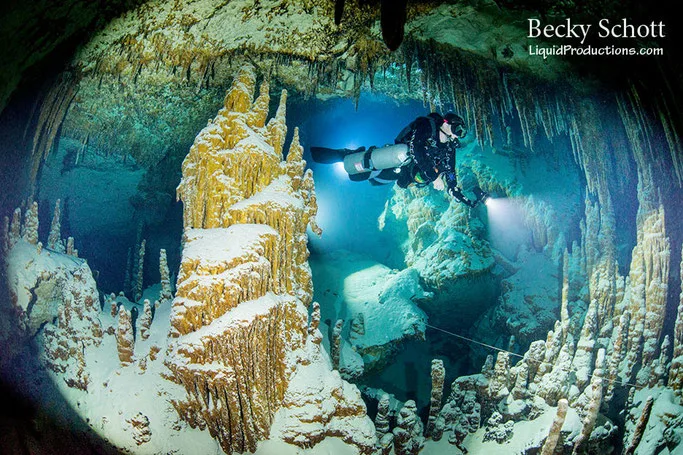
You’ve mentioned being creative and feeling that drive to show people the beautiful things you see. What other types of characteristics do you see in yourself that you think have also contributed to your success?
I’m a little ADD, I like to be doing something all the time, I don’t like to sit still for very long. I’m really interested in travelling and I really have this drive to see new places and meet people and experience new cultures and it’s something that’s hard to explain, but I just really want to fulfill that and by doing this type of work, this obviously fulfills a lot of that. Other personality traits, I’m very goal-oriented; I have a lot of drive; I’m really motivated when I want something. It doesn’t matter if it’s going to take me a year or ten years; I know that if it’s something I want, I’ll figure out a way to accomplish it.
What are some of the best and worst parts of a typical day on the job?
[Laughing] A typical Tuesday for me on the job is getting hit in the face with a jellyfish. No, really a typical day on the job can be anything from diving, gearing up in 150 lbs of gear and filming on a deep shipwreck in the great lakes, something from the 1800s, to shark diving – no cage – with something as crazy as great white sharks or even doing cave diving. There’s so many different environments that we go to, that the days can be different. Safety is a huge factor in what we do because it is a dangerous job and that’s where the diving background really comes into play. At this point now I’ve got 22 years of diving experience and I need that 22 years to be able to dive in any environment at any time when somebody like National Geographic calls and says, ‘hey, we’re doing and ice diving documentary, but we need you to leave in two weeks’. You need to have that skill and that experience to be able to go and do that type of work and be comfortable, because if you’re not comfortable with the environment, you’re not comfortable with the camera. So a typical day can really be anything and you’ve got to be prepared for anything and be prepared that the plan is going to change 20 times when you’re out there. You also have to be pretty flexible and willing to be a team player because you’re in tough environments a lot of times and things don’t always go to the plan and it can be very frustrating and challenging.
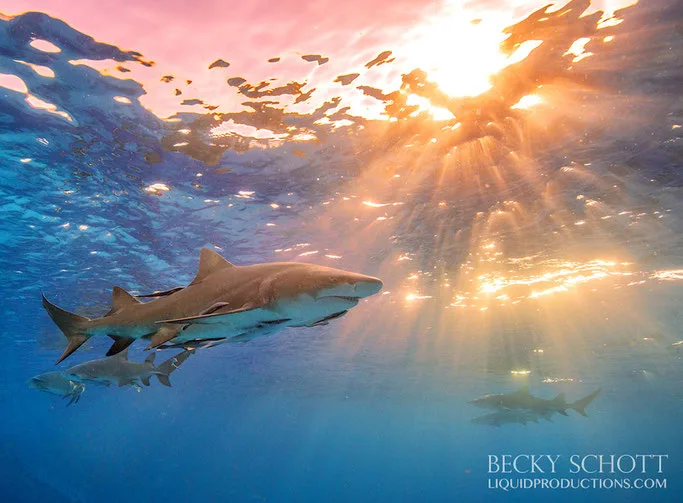
What do you personally feel the definition of success is?
Oh wow, that’s a good question. To me the definition of success is how you feel at the end of the day. No amount of awards or jobs or anything can make you feel successful. You have to feel it in your own heart. And it could be something very small that makes you feel successful or something very big like winning Emmy awards. But it’s just what you define it as being at the end of the day. For me, I felt successful when I started getting more and more calls and getting known for doing work in extreme underwater environments and basically when my schedule was full and I had to start turning things down, I feel upset because I want to do everything, but at the same time a great sense of pride that people respect me that much and want me for the job.
It’s very hard for people to find their passion, what kind of advice would you give people, whether it’s scuba related or something else, for finding that passion?
My advice for finding your passion is just to do a lot of different things. Keep trying new things until you find something that really captures your heart and take risks and take chances on things you may not think you’ll enjoy something, but you have to try it and give it a chance. There’s so many different things out there and I don’t know how sometimes when I talk to people and they say they don’t know what they like to do, but I’m like ‘gosh well there’s so much out there’. Again, just finding the time and doing the research. We have the tools today to pick up our computer and Google different types of careers, sports, activities, and different jobs. There’s definitely something out there for everyone. You just have to find what your niche is and sit back and think about what you like to do, you know if you like people if you like animals if you like business and put all your personality traits together and find the perfect job for you.
This interview has been condensed and edited.
Jeanette Smith is an IDC Staff Instructor at International Scuba in Carrollton, Texas and a first-time contributing writer for Girls That Scuba.

